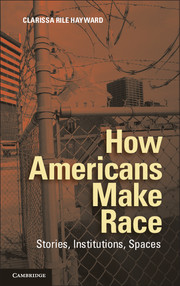1 - Identities and Stories
Published online by Cambridge University Press: 05 June 2014
Summary
Steven Mullins characterizes the story of his life as “the American story.” He is an American, first and foremost, he tells me. He feels deeply tied to his nation and to its history. Mullins expresses great pride in his country (if he had to rank all the countries in the world, he says, the United States would be at, or at least very near to, the top of his list) and he articulates a ready willingness to sacrifice for it. “I’m proud to be an American,” Mullins tells me, “[which] means that I understand why my ancestors came here.” He elaborates:
The Egans were Irish, you know. Ireland was terrible. Irish famines ... it was a place where you didn’t want to live. The French Huguenots, the Mullins side, we came out of Germany, came to America. Both families fought in the American Revolution... So ... I would like to think that if I was alive then, the beginning of this country, would I be a Tory or a Patriot? I would have definitely been a Patriot. Would I be willing to die for my country? Yes.
As Mullins recalls his life, and as he recounts to me what he has learned about the lives of his ancestors, he gestures toward the barn that stands on the farm where he grew up, and where he now lives. His mother was raised on this same farm. His maternal great-great grandfather, one of the first settlers of what, in 1837, would become the village of New Albany, Ohio, purchased the land for the farm in 1828. “[O]n this farm,” Mullins says, “is a beautiful barn, with a thirty-five star [Union] battle flag painted on [it].” “So, I grew up,” he tells me, “under the flag.”
- Type
- Chapter
- Information
- How Americans Make RaceStories, Institutions, Spaces, pp. 8 - 41Publisher: Cambridge University PressPrint publication year: 2013



